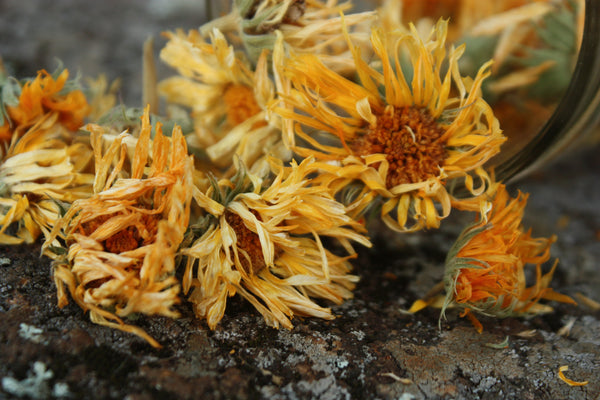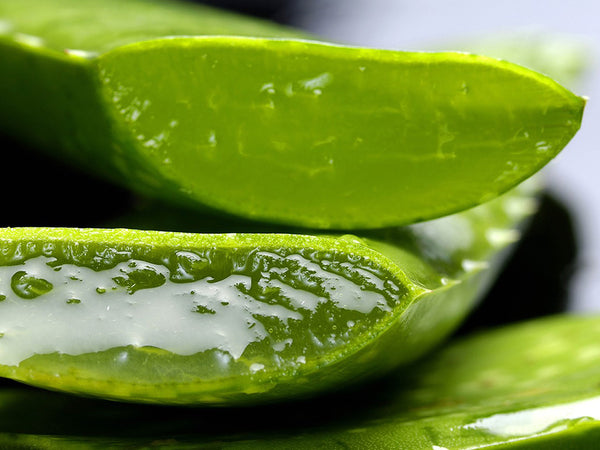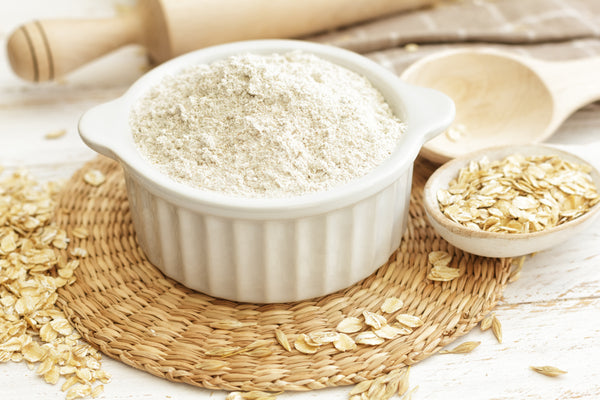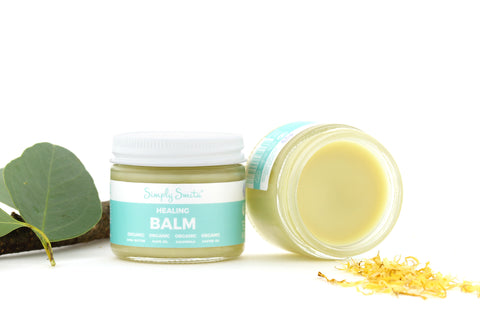Does your skin feel like the picture above? If you have eczema, then you know exactly what I'm talking about! Eczema is no fun. Believe me, I know. I've suffered from eczema since high school and it took me years to understand that it was triggered by the foods I ate, my environment, and that creams don't address the root cause of the problem.
Because eczema can be caused by a variety of factors, and everyone's body is unique, it's so important to take the time to learn your triggers. While it's different for everyone, here are some the most common ones I've come across:
- Food Allergies. Gluten, dairy, and soy are typically the culprits, but the best way to truly know if foods are triggering your eczema is by keeping a food journal and removing questionable foods from your diet for at least two weeks. For me, eczema patches that I had for years began clearing after a month of eliminating gluten from my diet. For tips on how to start a food journal, click here.
- Harsh Chemicals in Skincare Products + Detergents. Detergents are often filled with chemicals and fragrances that are not only bad for our health, but are also especially harsh on already dry skin. For skincare, it's important to steer clear of mineral oil (made from petroleum), alcohol-based cleansers and creams, and petroleum (i.e., Vaseline), to name a few, as these are all astringents, meaning they'll dehydrate your skin! Petroleum is not water soluble and actually repels water, so while it appears like your skin is getting better, it's super drying in the long run. It also creates a barrier on the skin, making it tough for it to breathe. Not to mention, it's a byproduct of oil so it's not eco-friendly and is often contaminated with chemicals. Yuck!
- Water-Based Creams. Though water-based lotions and creams may absorb into the skin quickly, they don't provide the long-lasting hydration eczema needs because they only absorb superficially. Water-based products are also typically packed with chemicals and synthetic preservatives so best to steer clear!
- Dry Environment. For me, there's not much I can do in the dry, Chicago winters; once the heat kicks on, my eczema flares up. But I've found having humidifiers running in all of our rooms and keeping my skin hydrated helps decrease irritation.
- Hot Showers. This was a tough one for me as I used to LOVE taking long showers every morning. Not only is the is a big no-no for eczema because it dries you out, but it's also wasting a lot of water.
- Scented Anything. Scents and eczema don't go well together. Most scents and fragrances in skin care products are just a bunch of toxic chemicals, but even organic essential oils can be very drying and trigger flareups so use wisely.

Caring for Eczema-Prone Skin
Over the years, these are the things that have helped keep my eczema from flaring up and reduced itching and/or irritation throughout my day:
- Eczema Needs Hydration. Applying organic balm while the skin is still damp from the shower has been one of the best ways to keep my skin from feeling itchy. It also helps to pat dry rather than rub after bathing to prevent irritating the skin. Here are some ingredients that help nourish eczema:
- Shea butter. Moisturizes, nourishes, and heals dry skin, and helps prevent scars by strengthening our skin's outer layer. Also helps create a protective layer on our skin for all you scratchers out there!
- Calendula Oil. Anti-inflammatory and antiseptic oil that reduces inflammation and itching and can also aid in scar healing.
- Castor Oil. Probably the most important and often overlooked ingredient. Castor oil absorbs deeper than any other oil so it truly hydrates your skin from the inside out, which is exactly what eczema needs! It's natural antibacterial and anti-inflammatory properties help soften, hydrate and protect the skin.

- Cool + Calm the Skin. When you're feeling inflamed, resist the urge to itch and reach for these instead to help cool and calm the skin:
- Ice Packs. As much as I always want to resist putting ice on my body, this works almost instantly!
- Fresh Aloe. If you have an aloe plant at home, this is a great natural remedy to cool eczema patches. Plus, it also helps reduce discoloration. I highly recommend fresh aloe if you have access to it. I find even the purest aloe vera gels irritate my eczema due to preservatives present in the product.
- Organic Chamomile Oil. Calms inflamed, irritated skin. Anti-inflammatory + antibacterial so also helps prevent infections if you've been scratching.
- Oatmeal. Oatmeal can be very soothing and calming for inflamed, itchy skin. See next bullet point for recipe.

- Gentle Exfoliation. While exfoliating with the wrong thing can actually make eczema worse, in my experience, I've found using a gentle exfoliator once a week really helps remove the dead layer of "snakeskin" that forms on top. I recommend using organic, gluten-free oat flour. Simply place oatmeal in a food processor until a smooth powder is formed. To Use: Add a couple of drops of water to 1-2 teaspoons of oat flour and mix with your finger until a paste forms. If the flour alone feels to dry for your skin, try adding a teaspoon of fresh aloe vera gel or organic jojoba oil and leave on as a "mask" for a few minutes before washing away.
- Use Organic Soap. This has probably made one of the biggest differences for me, aside from cutting out gluten and dairy. We don't realize how drying soaps can be as most of them strip our bodies of their natural oils. I've switched to an organic shea butter bar soap to wash my body and soapnuts for our laundry and have noticed my skin itches a lot less.

- Wear Breathable Layers. I can't tell you how much less I itch now in the winters due to what I'm wearing. Cotton, hemp, and linen fabrics are the most breathable, and wearing ankle socks, if you have eczema on your legs, helps a lot too. When at home, I try to keep my pant leg up so the eczema can breathe.
- Always Carry Balm on the Go! I literally keep a jar of our Healing Balm in every room, in my backpack, and in both cars. It's all about accessibility: if I have it, I'll use it. This way anytime my skin starts to feel itchy or inflamed, I'll rub the balm on and get instant relief, which means I'm less likely to scratch and tear my skin!
Love + Light,
Smita :)
RELATED POSTS YOU MAY ALSO ENJOY
Skincare Hacks Coconut Castor Oil

